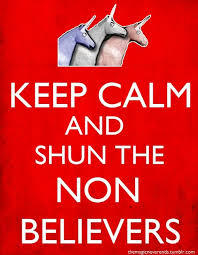What’s in a Meme?

A student of mine posted a meme on Facebook last week. A three sentence statement that compared two vastly different political and economic events to American immigration. She asked, “Is this for real?” I responded by stating that as the post was worded it was misleading and perhaps inaccurate. I did not say that it was absolutely false, just that it might be inaccurate. Within seconds, two more people responded: “Is there a ‘dislike‘ for Julie?” and “I believe this is true!” The responses were clearly emotional. A third person, another student, later posted that perhaps the original poster should explore this more deeply and do some research.
As an educator, I encourage my students to think critically. I don’t care if they agree with my positions. I do care that they posit a logical argument behind their conclusions. I hope that this is not an uncommon goal in higher education. Paul and Elder offer a framework for critical thinking. They begin their approach by addressing the need for critical thought. They assert, “Everyone thinks; it is our nature to do so. But much of our thinking, left to itself, is biased, distorted, partial, uninformed or down-right prejudiced.”[i] For many, this is a bitter pill to swallow. We want our assertions to be right. However, this can be increasingly challenging in a world influenced by sound bites, social media, and cliché.
Media influences reason. Over the last 100 years, the type of media people follow has changed. In the days when print media was king, readers gravitated toward the outlets which most reflected or affirmed their perspectives. In television media, people choose the news outlets which reaffirm their ideology, giving more or less credibility to the news based on the source[ii]. The inundation of quick snippets of information that often lack context and are tweeted throughout the interweb represent an even greater influence. People are more likely to believe a post from someone they believe is more credible, or a respected friend. Further, the volume of posts and information lead to a greater tendency to simply accept a piece of information as fact without true consideration.
Emotion influences reason. Yes, there are those who would suggest that the purest reason, the most objective logical argument, is formed apart from emotion. But growing neurobiological research suggests that when emotion centers of the brain are damaged, while logic centers remain untouched, human beings struggle creating logical arguments that inform behavior.[iii] Those ideas that we feel most passionately about are the ones we are more likely to pursue. Some researchers refer to this as “motivated reasoning”[iv], in which the ideas or beliefs we hold most firm create a bias in our reasoning. To come at these beliefs with a head on oppositional argument can lead to the backfire effect, in which individuals dig their heels in more deeply to their pre-formed ideas regardless of the credibility of the available information[v].
The challenge here is learning to recognize the emotional driver while remaining open to other perspectives, thus demonstrating what Paul and Elder consider essential intellectual traits: Intellectual Humility, Intellectual Courage, Intellectual Empathy, Intellectual Autonomy, Intellectual Integrity, Intellectual Perseverence, Confidence in Reason and Fairmindedness. Paul and Elder, as one of many strategies, encourage the critical thinker to recognize and acknowledge their biases. There is a biblical basis as well. Proverbs 14:29 states that, “He who is slow to anger has great understanding…” (NASB). When we slow our emotional response and take time to hear the other person, we increase our understanding or ability to reason. The mature critical thinker must acknowledge their emotional and ideological passions in order to honestly approach and apply critical thinking skills. As Pascal wrote, “It is on this knowledge of the heart and of the instincts that reason must establish itself and create the foundation for all discourse.”
[i] Paul, R., and Elder, L. 2009. Critical Thinking Concepts and Tools. Tomales, CA:Foundation for Critical Thinking Press.
[ii] Nisbet, E., and Garrett, K. 2010. Fox news contributes to spread of rumors about proposed NYC Mosque. http://www.comm.ohio-state.edu/kgarrett/MediaMosqueRumors.pdf
[iii] Damasio, A.R. 1994. Descartes’ error and the future of human life. Scientific American. Oct. 271(4):144.
[iv] Kunda, Z. 1990. The case for motivated reasoning. Psycho Bull. Nov;108(3):480-98. Retrieved from http://www.ncbi.nlm.nih.gov/pubmed/2270237
[v] McRaney, D. The Backfire effect. You are not so smart. Retrieved from http://youarenotsosmart.com/2011/06/10/the-backfire-effect/.
Leave a Reply
You must be logged in to post a comment.